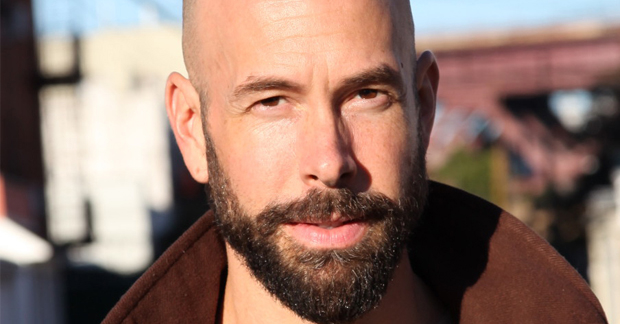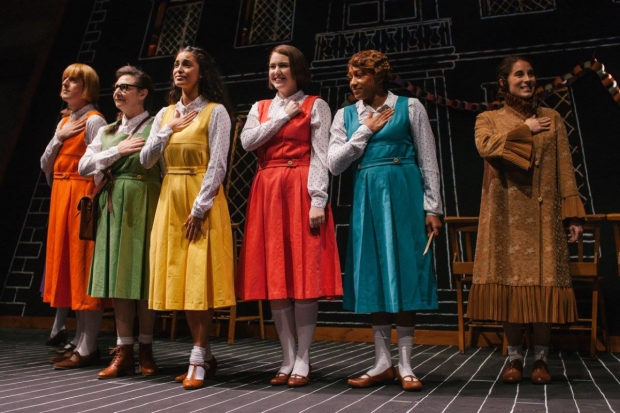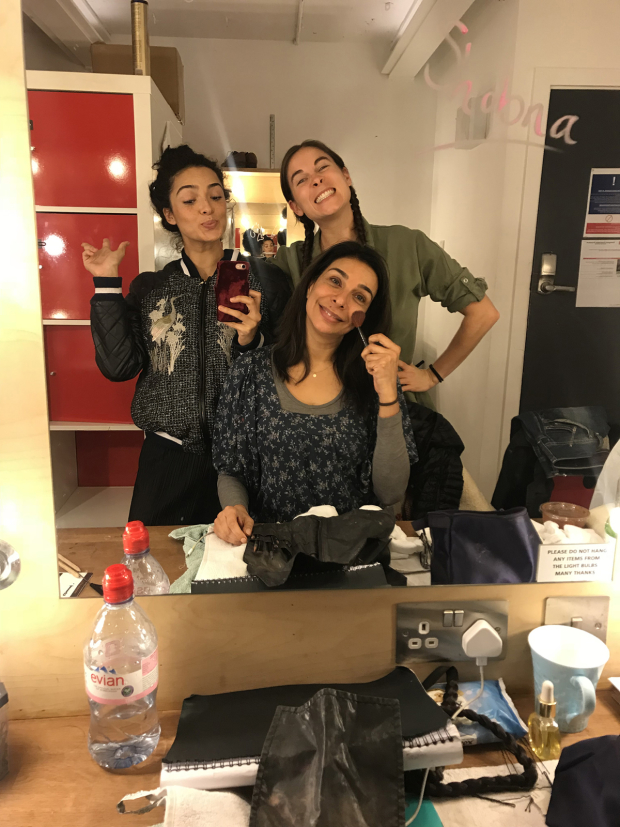Why professional runs for drama school graduate companies makes absolute sense
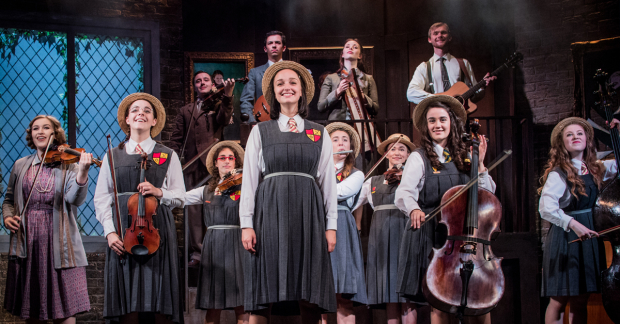
© Robert Workman
The production of Daisy Pulls It Off, at Charing Cross Theatre until the end of the month, significantly differs from the Paulette Randall revival which played at the Park Theatre last Christmas in at least two ways. Whereas the latter production featured established professionals such as Pauline McLynn and Shobna Gulati donning the gymslips to play plucky, PE-obsessed 1930s schoolgirls in Denise Deegan's comic romp, this version is cast with young performers about to graduate from the Guildford School of Acting's first ever actor-musician course. The other difference between this and other iterations of Deegan's perennially popular comedy is that – given the nature of the course that these performers are just completing – music runs through it almost constantly, played and sung live by the multi-tasking cast. The second-act hockey game is particularly inventive, with the company using their string bows in lieu of sticks.
The play feels particularly appropriate as a springboard for fledgling theatre careers.
Daisy Pulls It Off arrives in the West End, or rather off-West End, courtesy of producers Ashley Herman, Sean Sweeney and Steven Levy, all of whom are on the Professional Advisory Board of the GSA. The venture strikes me as a felicitous combination of showcasing a dozen talented multi-disciplined new performers (plus designer Ilona Dearden) about to launch into the industry while also giving them a taste of doing a run, albeit a short one, in a central London theatre, complete with an official, critically reviewed opening night. It isn't dissimilar to what the National Youth Theatre does annually at venues such as the Ambassadors, Finborough and Southwark Playhouse, except that these talented young actor-musicians are at a later stage in their training and development, and will be in the audition marketplace in a matter of weeks.
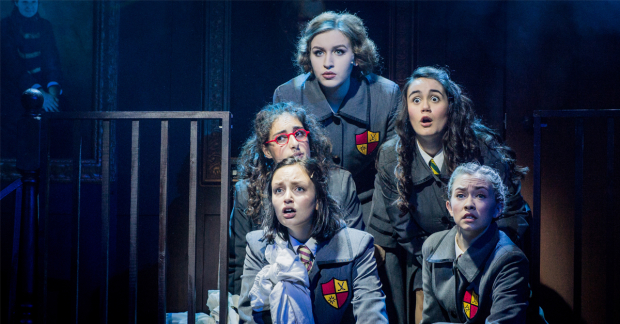
© Robert Workman
Although deliberately dated – it's essentially a stage homage to the Angela Brazil novels where jolly public schoolgirls got into all sorts of rambunctious scrapes – Daisy Pulls It Off speaks to modern sensibilities in that it features a brace of strong female characters being adventurous, forthright and heroic with very little input from men (the cast features nine women to three men). It also has a contemporary resonance in that it sets out to puncture the perceived elitism inherent in the public school system by fronting up a heroine from a working-class background (scholarship girl Daisy Meredith, winningly played here by Marina Papadopoulos) who overcomes the snobbish prejudice of some of her fellow pupils by being a frightfully good sort and a natural leader. Tellingly, the first version in the 1980s ran nearly three years on Shaftesbury Avenue at the height of Margaret Thatcher's power, and was produced by Andrew Lloyd Webber.
The musical elements throughout, vocal and instrumental, are flawless.
An essentially innocent piece focusing on youthful characters, the play feels particularly appropriate as a springboard for fledgling theatre careers, as it is intended to be here, when you consider that among the casts of that original production were acclaimed theatre director Sally Cookson – whose A Monster Calls is about to open at The Old Vic – and much-lauded leading ladies Samantha Bond and Lia Williams. It's often hard to spot who's going to make it in the mercurial world of show business but in the current company of hard-working talents, Katy Ellis as Daisy's biggest ally and Gemma Evans as the school villain's toadying sidekick display formidable comic skills. The musical elements throughout, vocal and instrumental, are flawless.
All in all, this is a win-win situation: it allows brand new performers the chance to play on a central London stage, to be reviewed professionally and to get more potential opportunities to be spotted by agents and casting directors than a one- or two-off showcase might provide, while audiences get to see a much-loved piece in a professional quality production for comparatively little outlay (all seats are £19.50). One can only hope that this is the first of many such enterprises.



